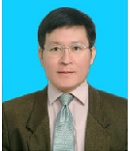International Conference on Coastal Zones
Osaka, Japan

Dr Chih-Hua Chang
Ling-Tung University,Taiwan
Title: Particle Motions Produced by a Solitary Wave Interacting with a Plate
Biography
Biography: Dr Chih-Hua Chang
Abstract
This study is aimed at the interaction of a solitary wave with a vertical thin plate to simulate the particle behaviors of vortex flow. The streamfunction-vorticity free-surface (SVFS) model using boundary-fitted grid combined with local overset grid to reveal vortex motions is applied and extended. The SVFS model is a fully-nonlinear viscous wave model. Virtual particles are scattered and traced to perform the vortex motions. Mechanical behaviors such as the streamlines, pathlines, streaklines and transient particle distributions are illustrated. Present numerical model is treated in a dimensionless scale referencing the undisturbed water depth and linear-long-wave celerity. For an infinitesimal plate, the flow characteristics are only dominated by three dimensionless parameters, that is the incident-wave height (A0), plate height (S), and Reynolds number (Re). In this paper, first, we compare qualitatively the streamline patterns with the experimental observations of the particle-tracing photographs. According to the experimental conditions, the Re is approximated as 66800. After verification, we analyze numerically the flow characteristics with different A0 and S. Only the brief results are shown here. An incident solitary wave moving toward right starts at x = -15 in front of the plate. Fig. 1 displays the comparisons of vortex motion between streamline simulation and particle-tracking experimental observation [1] at an instant time (t = 29). To distinct the wave height influence, Fig. 2 shows the particle scattering distributions at t = 50 with different incident wave heights. Fig. 3 illustrates few distorted timelines evolving with the development of vortex.
